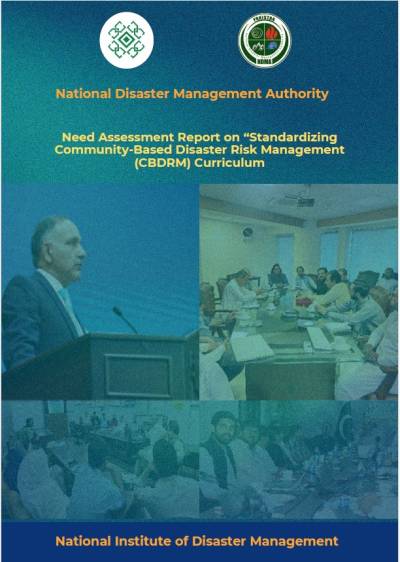
Assessing the impacts of Floods in Pakistan 2010-2024
The report “Assessing the Impacts of Floods in Pakistan (2010–2024)” highlights that Pakistan remains highly vulnerable to recurring floods, with the 2010 and 2022 events being the most devastating in history. These disasters caused massive human, economic, and infrastructural losses, exposing weaknesses in preparedness, forecasting, and governance. Recent floods (2023–2024) reaffirm that climate change, extreme rainfall, and poor land management are amplifying risks. The report stresses urgent investment in resilient infrastructure, early warning systems, and nature-based solutions to strengthen national flood resilience.

A Comprehensive Study of Flood Events in Pakistan 1950-2025
Floods are Pakistan’s most frequent and destructive hazard, driven by extreme rainfall, glacial melt, and poor land management, with major disasters recorded from 1950 to 2022. Climate change, urbanization, and governance gaps are intensifying risks, as seen in the catastrophic 2010 and 2022 floods. Projections for 2025 indicate heightened threats of GLOFs, flash floods, and urban inundation across all provinces. The report calls for an Integrated Flood Risk Management approach, combining structural defenses, early warning systems, nature-based solutions, and community-driven resilience.

Forest Fire Mitigation Practices and Recommendations
Pakistan, like many other countries, is experiencing an increase in forest fires due to climate change. Implementing global best practices for mitigation and management can help reduce their frequency and impact.

Heatwave Survival Guide & Best Practices
Heat waves have been classified among the most dangerous weather phenomena globally are among the most dangerous natural hazards. Major heat waves are associated with negative effects on society and ecosystems, including excess mortality in the population and reduced vegetation product, and often they are linked to rapidly emerging flash droughts.

Need Assessment Report On Standardizing Community Based Disaster Risk Management (CBDRM) Curriculum
The report provides a comprehensive account of the nationwide consultation process for developing the first-ever standardized training curriculum on Community-Based Disaster Risk Management (CBDRM). It highlights NDMA’s national initiative to harmonize disaster risk management training, offering a foundational reference to ensure consistency, quality, and relevance across all capacity-building programs.
Search box
Categories
- e-MHVRA (1)
- NIDM Publications (9)
- NDMA Resilience (8)
- Others (73)
- Gender & Child Cell(GCC) (22)
- Multi Hazard Vulnerability & Risk Assessment(MHVRA) (8)
- District Profile (20)
- Analysis / Studies & Survey Reports (32)
- Guidelines & Training Manuals (29)
- ERRA Publications (18)
- NDMA Publications (26)
- Newsletters (23)
- Annual Reports (17)
- Six Month Reports (2)
